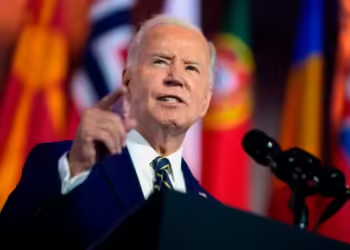Antigua and Barbuda will hold a republic referendum within three years.
The New York Times
Derrick Bryson Taylor
More than 40 years after Antigua and Barbuda gained its independence, the Caribbean nation’s prime minister on Saturday announced plans to hold a referendum on becoming a republic within three years, signaling a willingness to step away from the monarchy.
The Caribbean island nation is one of 14 Commonwealth Realms, countries that have the monarch as head of state.
“This is a matter that has to be taken to a referendum for the people to decide,” Prime Minister Gaston Browne told ITV News shortly after local dignitaries confirmed Charles III as King of Antigua and Barbuda at an accession ceremony.
Mr. Browne said the referendum was “not an act of hostility, or any difference between Antigua and Barbuda and the monarchy.”
He added: “It is the final step, as I said before, to complete that circle of independence, ensure that we are truly a sovereign nation.”
Antigua and Barbuda became an independent nation in 1981 after nearly 350 years of British rule.
Christopher Columbus first visited Antigua in 1493 and named it after a church in Seville, Spain. In the decades that followed, the Spanish and the French failed to colonize the island, but the British succeeded in 1632.
Today, fewer than 100,000 people live in Antigua and Barbuda, according to its government.
Last year, Barbados, a democracy of about 300,000 people, voted to remove Queen Elizabeth as head of state and swore in its first president, Sandra Mason.
It joined Guyana, which gained independence in 1966 and became a republic in 1970; Trinidad and Tobago, which became independent in 1962 and a republic in 1976; and Dominica, which gained full independence as a republic in 1978.
Mr. Browne said there wasn’t a rush to complete the action, but that the referendum “represents the aspiration of a people.”









